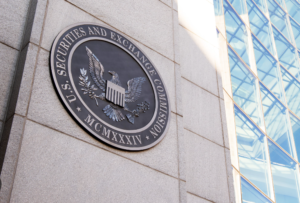$GBPUSD $FTSE100 $BTC
#AndrewBailey #BankofEngland #UKInflation #InterestRates #RateCuts #UKEconomy #MonetaryPolicy #FinanceNews #FTSE #GBP #CentralBankPolicy #GlobalMarkets
Andrew Bailey, the Governor of the Bank of England (BoE), has indicated the possibility of four interest rate cuts next year, contingent on the continued easing of inflationary pressures in the UK. His remarks, made during a recent interview with the Financial Times, have sparked fresh discussions about the trajectory of monetary policy as key economic indicators exceed expectations. Bailey noted that the better-than-expected decline in inflation highlights progress in taming price growth, potentially leading the way for a more accommodative policy stance. Analysts interpret these comments as a significant shift in tone from the central bank, which has aggressively raised rates in recent years to combat inflation surges.
The pound sterling ($GBPUSD) posted modest declines following Bailey’s remarks, as markets began pricing in the likelihood of monetary easing in 2024. The prediction of multiple rate cuts signals a departure from the BoE’s prior hawkish stance, with Bailey seemingly confident that inflation is now on a controlled downward path. Should this materialize, rate reductions could provide relief to various sectors of the UK economy struggling under the weight of higher borrowing costs, including real estate and retail. However, such a move would also necessitate balancing financial stability, particularly as global central banks remain divided on whether to ease or maintain current rate levels.
For equity markets, particularly the FTSE 100 ($FTSE100), the prospect of lower interest rates was received with mixed reactions. On one hand, sectors such as housing and consumer discretionary could benefit significantly from reduced financing costs, potentially boosting corporate earnings. On the other hand, financial stocks, particularly banks, may face tightening profit margins if lower interest rates compress lending spreads. This divergence underscores the complexity of gauging broad market impacts from potential BoE policy shifts. Meanwhile, analysts warn that premature expectations of rate cuts could lead to increased volatility as further economic data unfolds.
The broader implications of Bailey’s statements extend beyond the UK, particularly for global markets and cryptocurrencies like Bitcoin ($BTC). Lower interest rates in the UK could weaken the pound and bolster demand for assets priced in alternative currencies, including digital assets. Bitcoin and other cryptocurrencies have often been speculative beneficiaries of rate-cutting cycles when fiat currency weakness drives investor interest in decentralized options. However, volatility remains a significant risk factor here as well. Ultimately, Bailey’s cautiously optimistic tone suggests the BoE is positioning itself for adaptability, signaling that it will act decisively should inflationary pressures unexpectedly resurface.











Comments are closed.